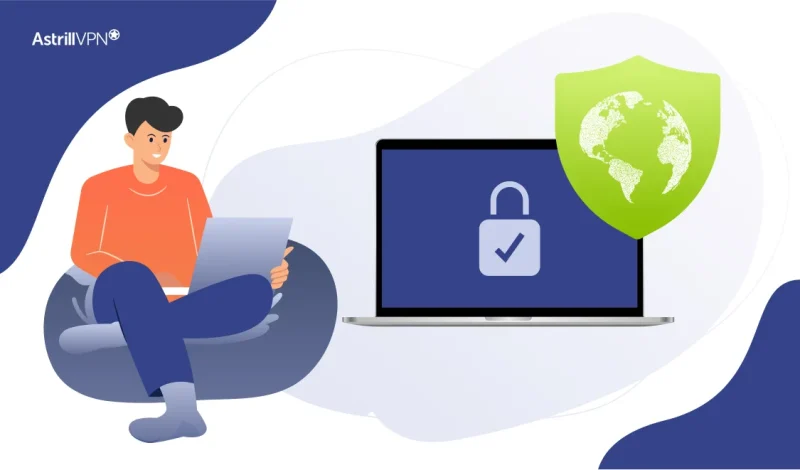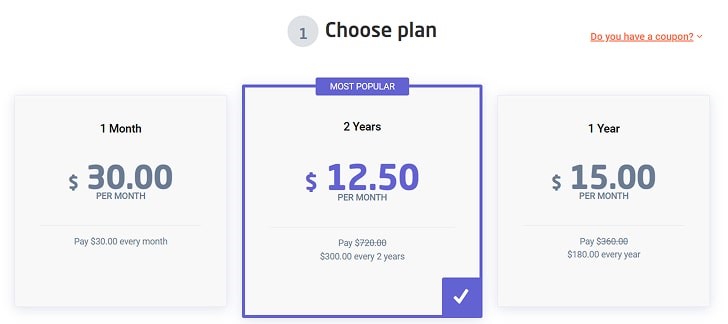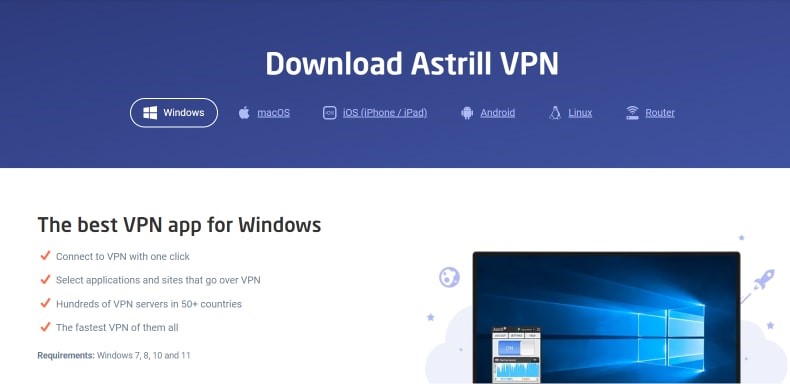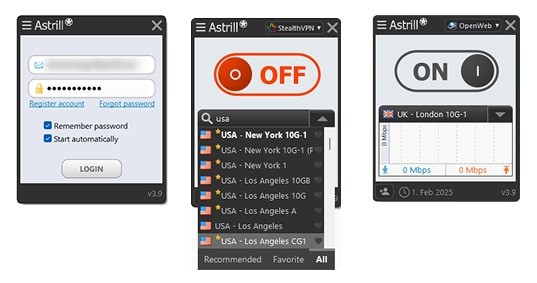Do I Need a VPN? Benefits, Uses & When to Get One

Arsalan Rathore

The internet has transformed how we live, work, and connect, but it has also introduced new risks. According to the report published by Cybercrime Magazine, In 2025, cyber threats are expected to surge, with global cybercrime costs projected to hit $10.5 trillion annually, marking a 15% year-over-year increase. As cyberattacks grow more sophisticated and widespread, businesses and individuals must prioritize robust cybersecurity measures to stay protected.
Also, a KPMG survey of 200 C-suite cyber leaders found that 40% faced a security breach, 38% experienced up to three attacks, and 76% feared increasingly sophisticated cyber threats.
These numbers highlight a growing reality: the internet is not as safe or private as we’d like to believe.
A VPN is a handy tool that helps you deal with online privacy and security worries. It’s not just some regular software; it’s your ticket to a safer and more open internet. By keeping your connection encrypted and hiding your IP address, a VPN ensures no one can snoop on what you’re doing online, keeps your data safe, and lets you bypass any barriers or restrictions on information access.
But what exactly does a VPN do, and how does it work? A VPN creates a secure tunnel between your device and the internet. When you connect to a VPN server, your data is encrypted, making it unreadable to hackers, ISPs, or anyone else trying to intercept it. At the same time, your real IP address is hidden, allowing you to easily browse anonymously and bypass geo-blocks.
While VPNs were once considered a niche tool for tech enthusiasts, they’ve become a mainstream solution for anyone who values privacy, security, and online freedom. Whether working remotely, streaming your favorite shows, or browsing the web, a VPN can significantly improve your internet experience.
In this guide, we’ll dive deeper into why you might need a VPN, how it can benefit you in various scenarios, and what to look for when choosing the right one. Let’s get started.
Table of Contents
Why Do I Need a VPN?
A VPN isn’t a one-size-fits-all solution, but there are specific situations where it becomes essential. Here’s a breakdown of key scenarios where a VPN can make a significant difference:
1. Protecting Your Privacy from ISPs and Advertisers
Your Internet Service Provider (ISP) has unrestricted visibility into your browsing activity. From the websites you visit to the files you download, ISPs can legally log and, in some countries, sell this data to third parties such as advertisers. This leads to targeted ads, profiling, and an erosion of digital privacy.
A VPN encrypts all your internet traffic and routes it through a secure server, making it unreadable to your ISP. This prevents your provider from tracking your online behavior, ensuring your browsing history, personal data, and research remain confidential. If you value your digital autonomy, a VPN is essential.
2. Securing Public Wi-Fi Connections
Public Wi-Fi networks, found in airports, cafes, hotels, and libraries, are often unencrypted, making them vulnerable to cyberattacks. Hackers can set up rogue access points or use “man-in-the-middle” tactics to intercept your data, including login credentials and financial information.
For example, in July 2024, Australian authorities charged a man for creating a fake Wi-Fi network that tricked airline passengers into exposing personal data.
Using a VPN over public Wi-Fi ensures that your connection is encrypted end-to-end. Even if a malicious actor intercepts your data, it will be unreadable. Whether checking email, accessing bank accounts, or working remotely, a VPN gives you peace of mind on any open network.
3. Accessing Geo-Restricted Content
Many streaming platforms and websites enforce geographic restrictions on content. Due to licensing agreements, services like Netflix, BBC iPlayer, and Hulu offer different libraries based on your location. If you’re traveling or living abroad, this can mean losing access to your favorite shows.
A VPN allows you to bypass geo-blocks by masking your real IP address and assigning you a new one from a different region. This will enable you to access region-specific content as if physically located there. For frequent travelers, expats, and streaming enthusiasts, a VPN is the gateway to a borderless internet.
4. Avoiding Government Censorship and Surveillance
In countries with strict internet censorship, access to global news outlets, messaging apps, and social platforms is often limited. VPNs play a critical role in bypassing these restrictions and restoring open access to information.
As of Q2 2024, VPN usage was notably high in countries like Russia (37.8%) and the United Arab Emirates (36.2%)—regions known for digital restrictions. While the exact motivations vary, it’s clear that many users depend on VPNs to evade government surveillance and censorship.
For journalists, activists, and individuals in restrictive regions, a VPN isn’t just a tool, it’s a digital lifeline.
5. Safe Torrenting and P2P File Sharing
Peer-to-peer (P2P) file sharing is a popular way to distribute large files, from open-source software to public-domain videos. While legal torrenting is safe, downloading copyrighted content, intentionally or not, can lead to legal warnings or ISP throttling.
A VPN masks your IP address and encrypts your traffic, keeping your torrenting activities private. With a VPN, ISPs can’t monitor or restrict your connection based on your P2P usage, and you can avoid unwanted scrutiny while sharing files responsibly.
6. Gaming Without Borders or Lag
Online gamers face unique challenges: region-locked content, high ping, server restrictions, and even DDoS attacks. A VPN can help mitigate all of these. Connecting to a VPN server closer to your game server’s location can reduce latency and avoid regional limitations.
Additionally, VPNs can help protect against targeted attacks, especially in competitive environments, by masking your real IP address. A VPN adds a strategic edge for gamers who value performance and protection.
7. Remote Work and Secure Business Access
Remote work has become the norm, but it comes with risks, especially when using unsecured networks. Accessing sensitive company data over public Wi-Fi can lead to data breaches if not properly secured.
A VPN ensures that all data transmitted between your device and your company’s servers is encrypted. This protects emails, shared documents, internal tools, and even video calls from unauthorized access. VPNs are essential for businesses and professionals to maintain security and regulatory compliance.
8. Unlocking Better Prices on Flights and Online Shopping
Dynamic pricing is real. Airlines, hotels, and e-commerce platforms often show different prices based on your location or browsing history. Switching your virtual location with a VPN allows you to compare prices across regions and potentially score better deals.
Savvy travelers and online shoppers increasingly use VPNs to uncover hidden discounts. While results may vary, the ability to browse anonymously and from multiple regions can help level the playing field, and save money.
9. Preventing Bandwidth Throttling by ISPs
Some ISPs intentionally slow down your internet connection during data-heavy activities like streaming, gaming, or downloading, especially during peak hours. This is known as bandwidth throttling.
A VPN hides your online activity from your ISP, preventing them from seeing what type of content you’re accessing. As a result, your connection remains stable and fast, regardless of the site or service you’re using. This is particularly useful for heavy streamers and remote workers who need uninterrupted speeds.
10. Protecting Smart Home Devices (IoT)
Smart TVs, home assistants, security cameras, and other Internet of Things (IoT) devices often have weak security. Hackers can exploit these connected gadgets to spy on users or launch attacks on different systems.
By configuring your router to use a VPN or a VPN that supports routers, you can encrypt traffic from all devices on your network, including IoT gadgets that don’t support VPN apps directly. This creates a secure perimeter around your smart home.
11. Securing Voice & Video Calls
VoIP services like Skype, Zoom, or WhatsApp calls can be intercepted or monitored on insecure networks. If you’re discussing sensitive matters, a VPN adds a critical layer of security by encrypting your call traffic.
A VPN ensures that conversations remain private and confidential for professionals, journalists, or individuals in surveillance-heavy regions.
12. Bypassing Firewalls at Work or School
Institutions like schools, universities, and corporate offices often restrict access to certain websites, apps, or services. Whether you need to access a blocked research tool or use a messaging app, a VPN allows you to circumvent these firewalls without compromising network security.
AstrillVPN’s StealthVPN and Smart Mode are particularly helpful in bypassing aggressive content filtering without detection.
13. Securing Crypto Transactions and Wallets
The rise of cryptocurrencies has made privacy and security more important than ever. When accessing crypto exchanges or wallets, especially on public networks, your IP address can expose you to phishing or targeted attacks.
A VPN encrypts and anonymizes your connection, making it much harder for hackers to monitor your activity or trace it back to your identity.
14. Protection in Countries with Mandatory Data Retention
Some governments enforce mandatory data retention laws, requiring ISPs to store user activity logs for months or even years. If you live or travel in such countries, your browsing history may be logged even if you’re not doing anything sensitive.
A VPN prevents your ISP and government-level surveillance systems from recording your browsing behavior by encrypting your traffic and masking your identity.
Do I Need a VPN on My Phone?
Your smartphone is a hub for personal and sensitive information, making it a prime target for privacy breaches and cyberattacks. But do you need a VPN on your phone? Let’s break it down based on your mobile usage and the risks you face.
1. Public Wi-Fi Vulnerabilities
When you’re on the go, public Wi-Fi networks are often your only option for internet access. However, these networks are notoriously insecure, exposing your data to hackers. A VPN encrypts your connection, ensuring your emails, passwords, and financial transactions remain private, even on unsecured networks.
2. App Tracking and Data Collection
Many apps on your phone collect and share your data with third parties, often without your knowledge. A VPN masks your IP address and encrypts your traffic, making it harder for apps to track your online behavior and ensuring your personal information stays private.
3. Mobile-Specific Threats
Cybercriminals increasingly target smartphones due to their widespread use and the sensitive data they store. A VPN adds an extra layer of security, protecting your device from malware, phishing attacks, and other mobile-specific threats.
4. Accessing Mobile-Only Content
Some streaming services and apps offer mobile-exclusive content that may be restricted in your region. A VPN allows you to bypass these restrictions, giving you access to a wider range of content on your phone.
5. Traveling Abroad
If you travel frequently, a VPN is essential for accessing your favorite apps and services that may be blocked in certain countries. It also ensures that your sensitive data, such as banking information, remains secure while abroad.
Do I Need a VPN at Home?
Your home network might feel safe, but it’s not immune to risks. Here’s why you might still need a VPN at home, even in the comfort of your own space.
1. ISP Monitoring and Data Collection
Your ISP can monitor and log your online activities, even at home. In many regions, ISPs can legally sell this data to advertisers. A VPN encrypts your traffic, preventing your ISP from tracking browsing habits and ensuring privacy.
2. Securing Smart Home Devices
Smart home devices like security cameras, smart TVs, and voice assistants are often vulnerable to hacking. A VPN encrypts your home network, protecting all connected devices from cyber threats.
3. Avoiding Bandwidth Throttling
ISPs often throttle internet speed when you stream, game, or download large files. A VPN hides your online activities, preventing your ISP from slowing your connection and ensuring consistent speeds.
4. Accessing Home-Only Content
Some streaming services and websites offer region-specific content that may not be available in your area. A VPN allows you to bypass these restrictions, giving you access to a wider range of content from the comfort of your home.
5. Protecting Family Privacy
If multiple people use your home network, a VPN ensures everyone’s online activities remain private and secure. This is especially important if children or less tech-savvy family members use the internet.
How to Use AstrillVPN on Your Device?
Using AstrillVPN is very easy, and you can get started within a minute by following these 6 simple steps:
- Sign up for AstrillVPN through the official website.

- Download and install the AstrillVPN app on your device.

- Open the app and log in using your credentials.

- Now select the VPN protocol of your choice from the drop-down list.
- Select your preferred server from the list.
- Now click the power toggle button to establish the connection to the VPN server.
Enjoy Secure and Fast Browsing with AstrillVPN
Signup NowWhen Do You Not Need a VPN?
While VPNs are incredibly useful tools for enhancing privacy, security, and accessibility, they aren’t always necessary. In certain situations, using a VPN might be overkill or even counterproductive. Here are the reasons why you might not need a VPN:
1. You’re Only Browsing Low-Risk Websites
You may not need a VPN if your online activities are limited to low-risk websites, such as reading news articles, checking the weather, or browsing recipe blogs. These activities typically don’t involve sensitive information, so the added layer of encryption and privacy a VPN provides might not be essential.
2. You’re Not Concerned About Online Privacy
Some users simply don’t prioritize online privacy. A VPN may not be necessary if you’re comfortable with your ISP, advertisers, or other entities tracking your browsing habits. However, it’s worth noting that even seemingly harmless data collection can lead to targeted ads, profiling, and potential misuse of your information over time.
3. You’re Not Accessing Geo-Restricted Content
If you don’t stream content from platforms like Netflix, Hulu, or BBC iPlayer, or if you’re satisfied with the content available in your region, a VPN’s ability to bypass geo-restrictions may not be relevant to you. Similarly, this feature might not be a priority if you don’t travel frequently or need to access region-specific services.
4. You’re Not Using Public Wi-Fi
Public Wi-Fi networks are one of the most common reasons people use VPNs, as these networks are often unsecured and vulnerable to cyberattacks. However, the risks associated with public Wi-Fi don’t apply to you if you primarily use your home network or a trusted private connection. In such cases, a VPN might not be necessary unless you have other specific privacy or security concerns.
5. You’re Not Torrenting or Sharing Files
Torrenting and peer-to-peer (P2P) file sharing can expose your IP address and online activities to others on the network. If you don’t engage in these activities, the need for a VPN to protect your anonymity during file sharing is eliminated.
6. You’re Not Working Remotely or Handling Sensitive Data
Remote workers and professionals who handle sensitive data often rely on VPNs to secure their connections, especially when using public networks. A VPN might not be essential for your professional needs if your work doesn’t involve accessing confidential information or working from unsecured locations.
7. You’re Not Gaming or Facing ISP Throttling
Gamers often use VPNs to reduce lag, access region-locked games, or protect against DDoS attacks. Similarly, users who experience ISP throttling during streaming or downloading may benefit from a VPN. If these scenarios don’t apply to you, a VPN might not be necessary for your online activities.
8. You’re in a Region with VPN Restrictions
In some countries, VPNs are heavily restricted or outright banned. Using a VPN might be unnecessary and risky if you’re in such a region. Understanding the legal implications of using a VPN in your area is important before deciding whether it’s worth the potential consequences.
Conclusion
The decision to use a VPN ultimately depends on your online habits, priorities, and the level of privacy and security you desire. As we’ve explored in this guide, VPNs are invaluable tools for a wide range of users, from privacy-conscious individuals and streaming enthusiasts to remote workers and gamers. They offer enhanced privacy, robust security, and the freedom to access content without restrictions.
However, not everyone needs a VPN. If your online activities are limited to low-risk browsing, you’re not concerned about privacy, or you rarely use public Wi-Fi, a VPN might not be essential. In an era where cyber threats are on the rise and online surveillance is becoming more pervasive, a VPN is increasingly becoming a necessity rather than a luxury.
For those who value their online freedom and security, AstrillVPN stands out as a top-tier solution. With its military-grade encryption, strict no-logs policy, and global network of high-speed servers, AstrillVPN delivers unmatched performance and reliability. Whether streaming your favorite shows, securing sensitive work data, or simply browsing the web, AstrillVPN ensures your online experience is safe, private, and unrestricted.
If you’re still deciding, consider this: a VPN is an investment in your digital well-being. It’s a small step that can significantly change how you experience the internet.
FAQs
Public Wi-Fi hotspots are easy targets for man-in-the-middle attacks. A VPN encrypts every packet before it leaves your laptop or phone, so even if someone intercepts the signal they see only indecipherable code .
Yes. Because your ISP can no longer see which sites or services you’re using, it can’t log browsing details or selectively slow down bandwidth-heavy activities like streaming or gaming .
By letting you choose an exit server in another country, a VPN makes it appear as though you’re browsing from that location, bypassing geo-blocks on streaming libraries, social networks, or news sites
Yes. A VPN encrypts traffic but does not remove malware or block malicious downloads. Combine it with up-to-date antivirus, a password manager, and multi-factor authentication for full protection


No comments were posted yet